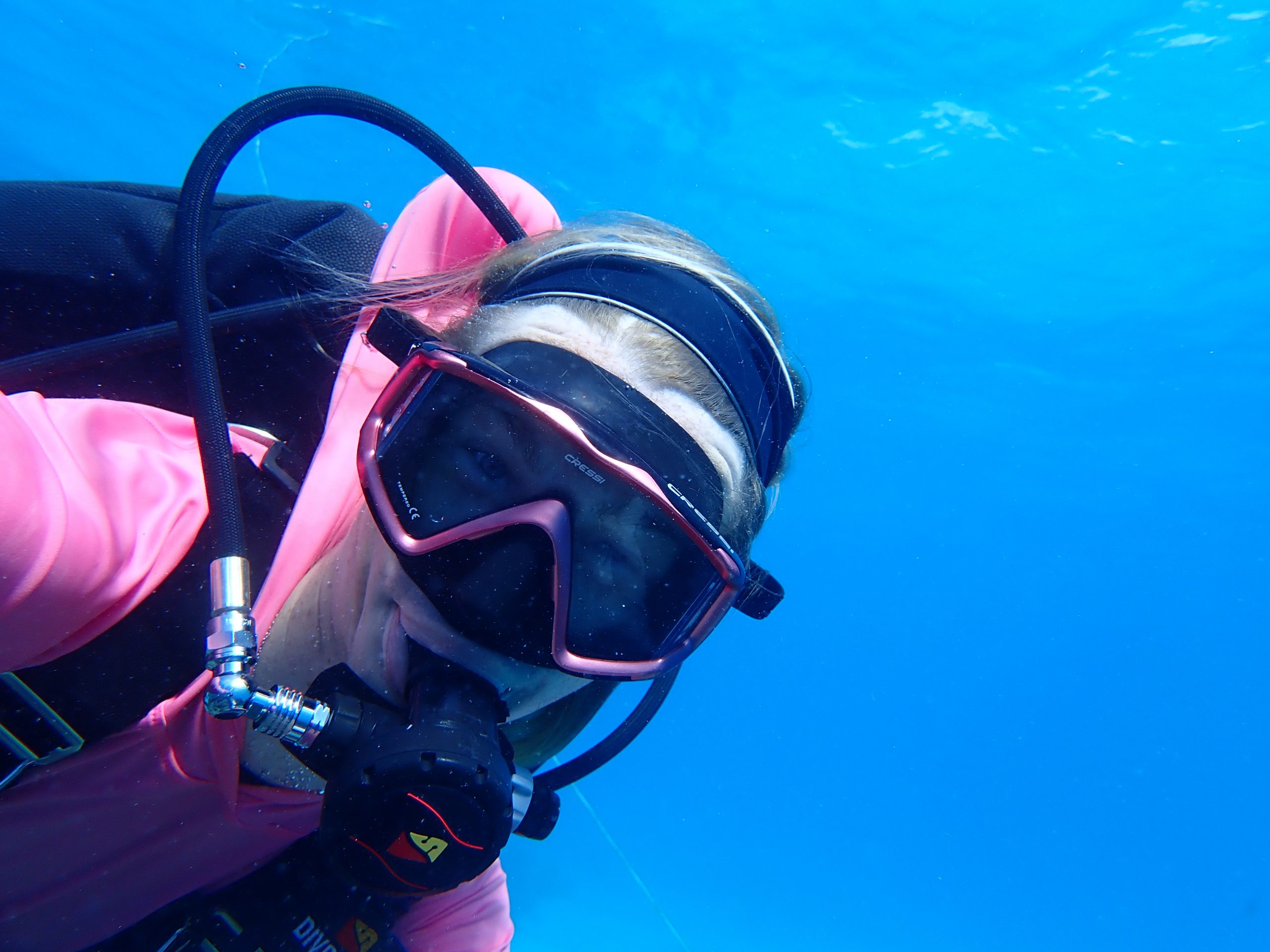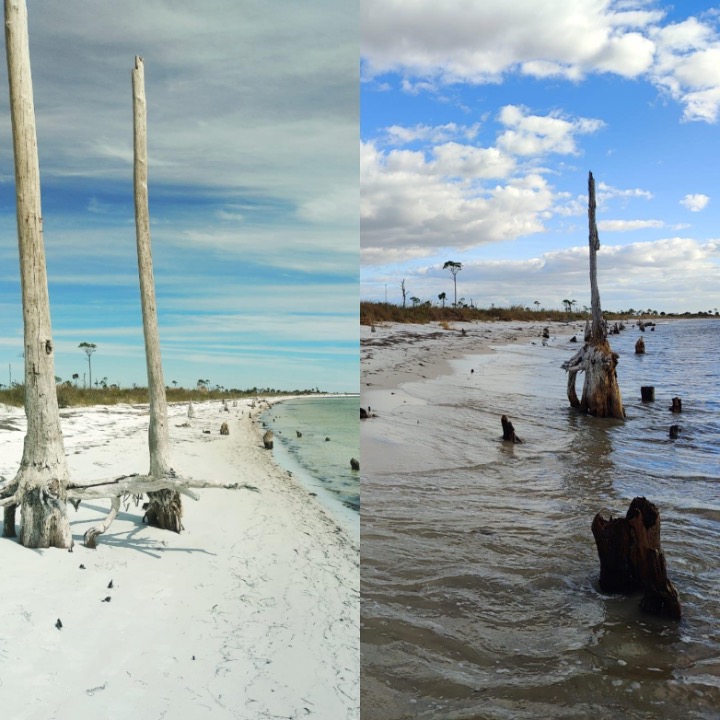As a research technician at the Center for Coastal Solutions, Charli Pezoldt gets to live out their childhood dream job of working on the water. Pezoldt is part of a field operations team that helps scientists at the University of Florida collect data and coordinate logistics for numerous experiments and projects.
“The innate desire to want to be outside and general curiosity of what is going on collided and pushed me right into field ecology,” said Pezoldt. “Growing up I would watch Discovery Channel shows and see researchers and scientists working on boats. At the core of everything, my first draw to science was getting to be on the water.”

As a field technician at Florida International University (FIU) for several years, and now at the University of Florida (UF), Pezoldt has traveled extensively across the state, from the “river of grass” in the Everglades to seagrass beds near the shore at Tyndall Air Force Base, located just east of Panama City, Florida. Though initially drawn to wetlands, Pezoldt discovered a passion for working on the coast and in the ocean through their experiences.
Pezoldt recalls the pleasure of once floating for hours among seagrass beds with a team of UF researchers working on a project to test the use of nature-based solutions to improve coastal resilience at Tyndall Air Force Base. Underwater, the research team communicates for hours at a time using only hand signals, staying attentive to each other’s presence and the world around them.
“Seagrass beds are always teeming with life,” said Pezoldt. “There’s small shrimp, little crabs and tiny, tiny fish. You feel your body rock in the surf, and you feel the seagrass flowing in the same way. There’s that interconnection.”
The great deal of time spent working in these ecosystems is a double-edged sword for the team: while they get to experience the ocean’s marvels they’re also on the front lines of observing the negative impacts of climate change and other environmental issues. Near the air force base at Tyndall, for example, the team noticed that the beach had eroded at an alarming rate during the past year – a stark reminder of the purpose behind their work.

“These changes are going to happen whether I’m here or not, the most I can do is just pay attention to it and try to make a difference in whatever way we can,” said Pezoldt. “When I get to go out and work with different people in the field and see what research is being done in such a close and personal way, it drives me to help in any way.”
—
By Megan Sam
